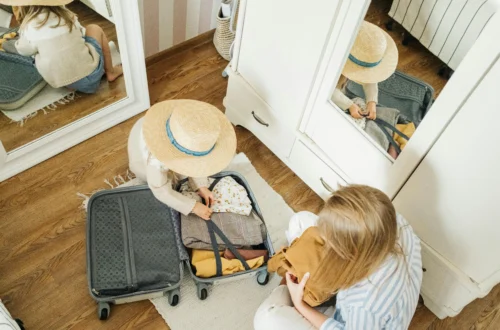At the time of signing a lease, both the landlord and the tenant agree to several terms and conditions in the lease. One of the characteristics that is always taken into account is the rental deposit. In this AB Apartment Barcelona article, we give you all the keys to how it works and we answer any questions you may have as an owner.
What is the rental deposit and what is it for?
The rental deposit is the amount of money that tenants have to pay to the owners before they arrive at the apartment, to ensure that they will comply with the obligations of the apartment. It works as a guarantee against defaults and possible damages. It is an issue that concerns both the owner and the tenant.
It is regulated by article 36 of the Urban Leasing Law (LAU), which stipulates that the deposit will be 1 month in leases for housing and 2 months in leases for use other than housing, for example, premises or houses for tourist use.
Legal bond or deposit?
The bond and the deposit are two concepts that often cause confusion, but in reality they have different definitions. In the case of the deposit, this refers to the obligation established by law that tenants pay the amount corresponding to a monthly rent, and it is the owner who must be in charge of paying the corresponding institution according to the autonomous community. Instead, the deposit is considered an additional guarantee that can be requested by the owners. The landlord retains it and returns it at the end of the lease, if the tenant has complied with all the agreed conditions.
Where is the rental deposit deposited?
Each autonomous community has an official body where the deposit must be deposited. In the case of Catalonia, the person in charge of collecting the bonds is the public entity INCASÒL (Institut Català del Sòl). From 1 February 2023, in order to make the deposit and return the deposit, you must have digital identification (ldCAT Mòbil, Cl@ve PIN, Cl@ve Permanent).
As we have already mentioned, it is mandatory for the owner to deposit it, in the event that he does not do so, he would be incurring several infractions that could have their consequences:
- An economic fine of between 35% and up to 75% of the amount of the bond
- If it is paid after two months, the owner will receive a surcharge of 25% on the amount of the deposit. In addition, the interest caused by the delay will be added, the amount of which may not exceed €1,500.
Refund of the deposit
In general, after the end of the rental contract and after inspecting the apartment and verifying that there are no defects or damages, non-payment of supplies or delays in the payment of the rent, the amount of the deposit must be returned.
If you have an apartment for rent in Barcelona, INCASÒL has 21 days to refund the deposit. As the owner, it is established that you must return the security deposit within 30 days after the tenant returns the key. If not, they can go to the courts to request the full return of the deposit.
Can I not return the deposit?
There are 3 cases in which the landlord can withhold the deposit before returning it to the tenant:
- Debts: When the tenant does not comply with the obligation to pay the monthly installments, such as supplies (water, electricity, gas) or fails to meet the agreed deadlines to pay the rent.
- Defects: When there are defects or damage to equipment or appliances in the home.
- Cleaning: When the apartment is not returned in the stipulated cleaning conditions. In this case, the required amount will be retained and the remainder returned.
Expenses not covered by the rental deposit
- Improvement works: These are those reforms that are not necessary for the daily life of the tenant, but can help their quality of life. For example, changing tiles, installing air conditioning…
- Conservation works: These are those that are essential for the tenant to live in habitable conditions. For example, if there is humidity and you have to change the pipe.
- Small repairs: These are natural wear and tear over the years. For example, repainting the walls because they are worn.
If you have any other questions about the rental deposit, you can consult our experts!






